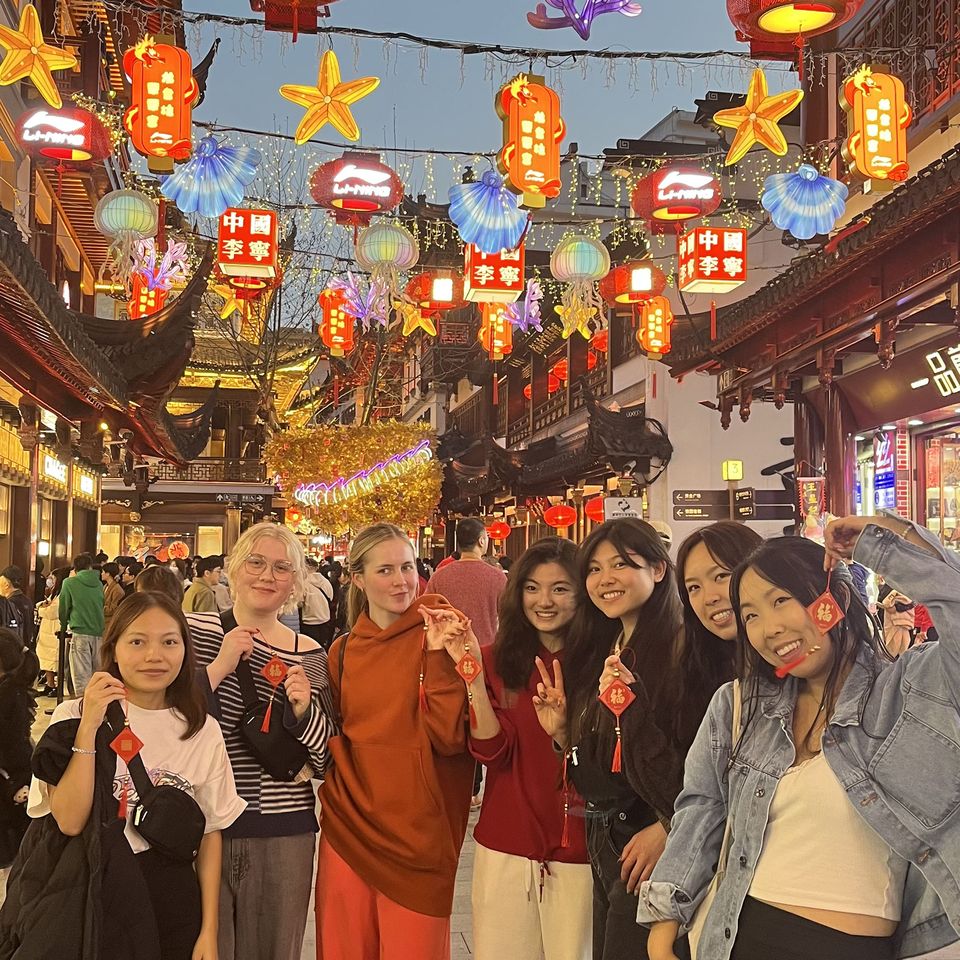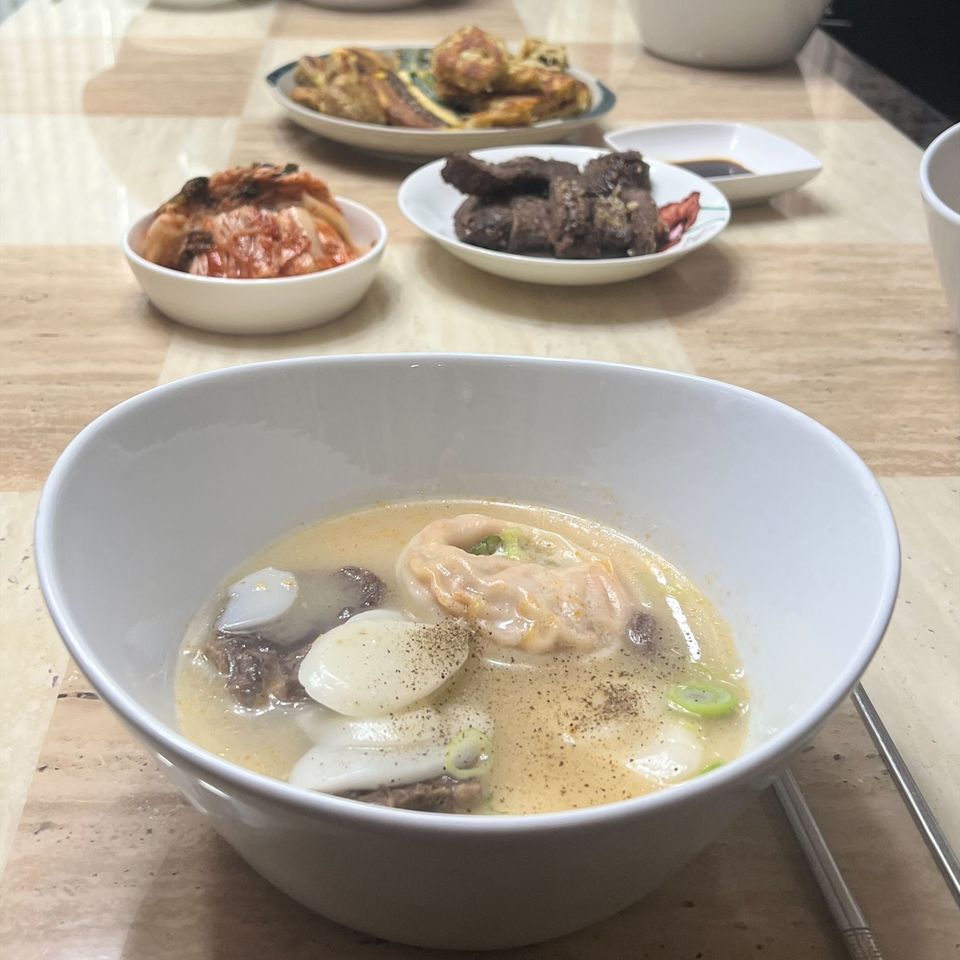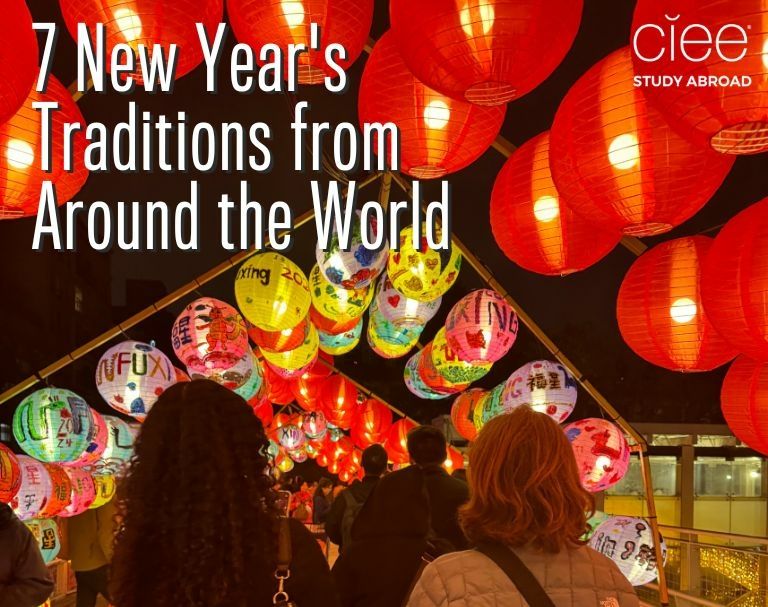7 New Year's Traditions from Around the World
Sparkly outfits, fireworks, and midnight countdowns are probably what come to mind when you think of New Year’s traditions. But around the world, people celebrate in ways that are anything but ordinary. From quirky traditions to meaningful rituals, New Year’s is more than just a party – it’s a chance to start fresh and make unforgettable memories with family and friends.
So, whether you're planning your next adventure or just looking to level up your New Year's trivia, let's dive into some of the coolest ways people celebrate across the globe!
How is New Year’s Celebrated Around the World?
New Year’s Day traditions take on exciting forms around the world, blending tradition with festivity. Whether it’s tossing plates in Denmark, feasting on 12 grapes in Spain, or watching fireworks light up the skies in Mexico, each country brings its own unique twist to ringing in the new year.
New Year's Traditions in China
In China, New Year’s celebrations are all about fresh starts – but they don’t always happen on January 1. While the Gregorian New Year is recognized with some festivities, the real highlight is the Lunar New Year, rooted in centuries of Chinese New Year traditions. This epic holiday typically falls between late January and mid-February and lasts for an exciting 15 days.
Families reunite to share symbolic dishes like dumplings, fish, and spring rolls, all believed to bring good fortune. Streets come alive with colorful parades, dragon and lion dances, and mesmerizing fireworks designed to ward off evil spirits. Red envelopes stuffed with money are exchanged to spread luck, making the celebration as meaningful as it is festive. It’s the perfect mix of tradition, joy, and hope for the year ahead!

Read More: Top 5 Places to Study Abroad in the Asia-Pacific Region
New Year's Traditions in Spain
New Year’s Eve in Spain, or “Nochevieja,” is all about good vibes and even better luck. As the clock strikes midnight, Spaniards follow one of the country’s most iconic traditions: Eating 12 grapes, one for each chime of the clock. Each grape represents good fortune for the months ahead, but beware – you have to eat them in sync with the bells or risk missing out on the luck!
Many people gather at Madrid’s famous Puerta del Sol for a lively countdown, while others celebrate with family and friends at home. After midnight, the party continues with fireworks, music, and late-night fiestas that last until the early hours of the new year. It's a celebration filled with joy, hope, and a dash of superstition.
Read More: Best Places to Study Abroad in Spain
New Year's Traditions in South Korea
In South Korea, New Year’s celebrations blend modern festivities with rich cultural traditions. While many people celebrate the international New Year on January 1 with fireworks and parties, the true highlight is Seollal, the Korean Lunar New Year. During Seollal, families gather to honor ancestors through a ceremony called “Charye,” offering food and paying respects. It’s also a time for wearing traditional “hanbok” and playing folk games like “yut nori.”
One beloved custom is “saebae,” a deep bow children give to elders in exchange for well-wishes and small gifts of money, called “sebae don.” Whether enjoying a modern countdown in Seoul or participating in cherished family traditions, South Korea’s New Year celebrations are a meaningful blend of past and present.

Read More: Why Study Abroad in Seoul: Top 3 Reasons
New Year's Traditions in Mexico
Mexican new year traditions are full of lively customs and family-centered celebrations. Similarly to Spain, one of the most famous traditions is eating 12 grapes at midnight, one for each stroke of the clock, with each grape representing a wish or hope for the upcoming year. Many people in Mexico also wear yellow underwear for good luck and prosperity in the new year.
Another tradition is the “quema del año viejo,” where effigies symbolizing the old year are burned to banish bad luck and make room for fresh starts. The night is filled with fireworks, music, and delicious foods like tamales and bacalao (salted cod).
Read More: Top 6 Mexico Study Abroad Programs
New Year's Traditions in Italy
In Italy, New Year’s is celebrated with a mix of festive food, fun traditions, and a bit of luck. One of the most popular Italian new year traditions is wearing red underwear – a symbol of good luck and fortune for the year ahead. As midnight strikes, many Italians celebrate with fireworks and cheers, and in some regions, people throw old items out of their windows to symbolize getting rid of the past and making room for the new. In Rome, fireworks light up the sky, and Piazza del Popolo hosts a spectacular midnight celebration.
Italian new year traditions also include a special meal of lenticchie (lentils) for good luck, symbolizing wealth and prosperity. Whether enjoying a late-night dinner with family or joining a lively street celebration, New Year's in Italy is all about letting go of the old and welcoming the new with joy and optimism.
Read More: The Ultimate Guide to Studying Abroad in Italy
New Year's Traditions in England
New Year’s Eve in England is filled with lively traditions that bring people together to celebrate the start of a fresh year. As the clock strikes midnight, it's common to sing “Auld Lang Syne,” a beloved tune from Scotland that echoes through pubs and streets across the United Kingdom. One of the country’s most intriguing customs is first-footing, where the first person to enter a home after midnight is believed to bring good luck. Ideally, this person should be tall, dark-haired, and bring gifts like coal, bread, or whiskey. In London, the epic fireworks display over the River Thames lights up the night, attracting millions of viewers.
Read More: 10 Reasons to Study Abroad in London
New Year’s Traditions in Denmark
When the clock hits midnight in Denmark, old plates and glasses are thrown at friends’ doors, a quirky custom believed to ward off bad spirits and bring good luck for the year ahead. The streets are filled with cheers and laughter as Danes also celebrate with a massive fireworks display, lighting up the night sky over Copenhagen. One of the most unique Danish traditions is jumping off a chair at midnight – symbolizing a "leap" into the new year. The bigger the jump, the better the luck for the coming year! This tradition, along with the festive spirit, adds an extra touch of excitement to the celebrations, making it an unforgettable experience.
Read More: The Ultimate Guide to Studying Abroad in Denmark
Spend New Year’s Abroad with CIEE
Feeling inspired by these exciting New Year's traditions around the world? Celebrate abroad with CIEE!
While CIEE programs don’t run during the holiday, you can extend your stay for a week or two after your fall semester ends, arrive early before your spring program starts, or participate in a January program to fully enjoy the New Year’s fun! Envision yourself ringing in the new year with fireworks in Spain or throwing plates at doors in Denmark.
Get ready to ring in the new year with a global adventure you’ll be talking about for years to come!

